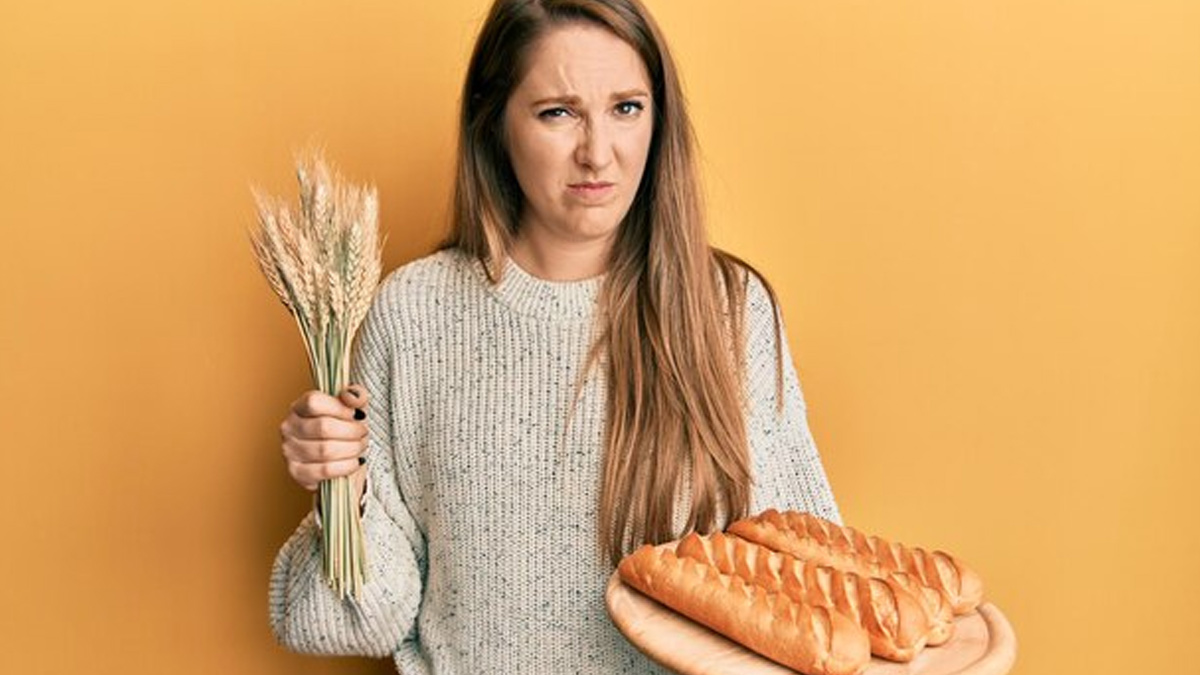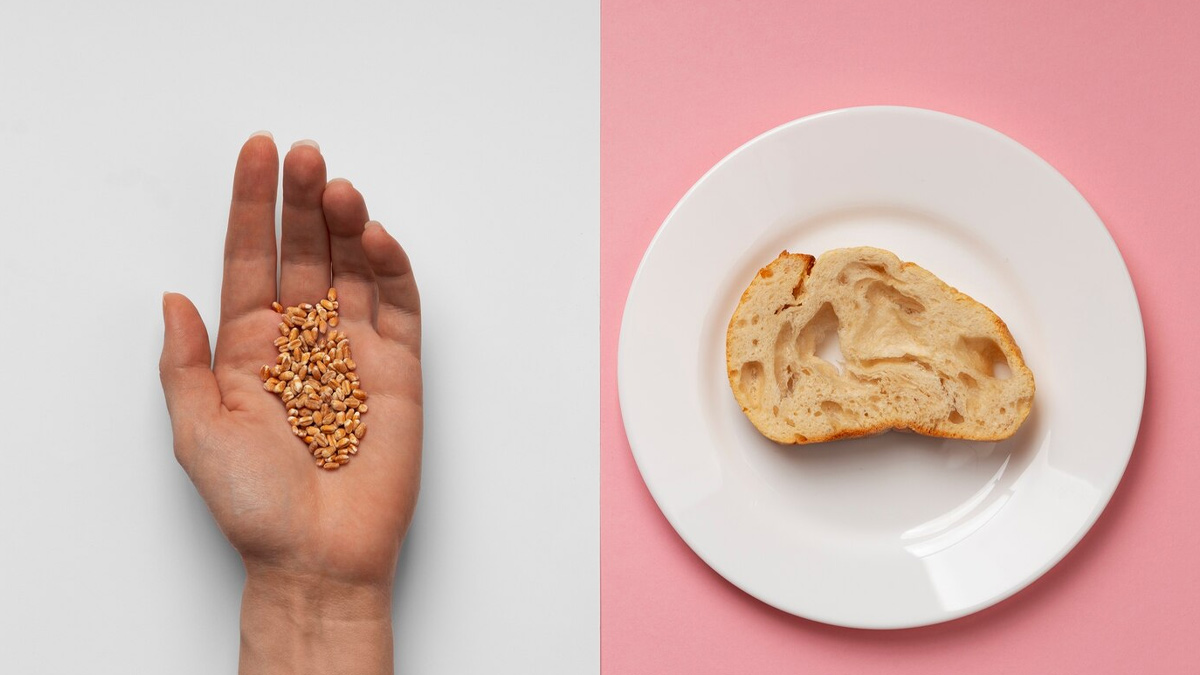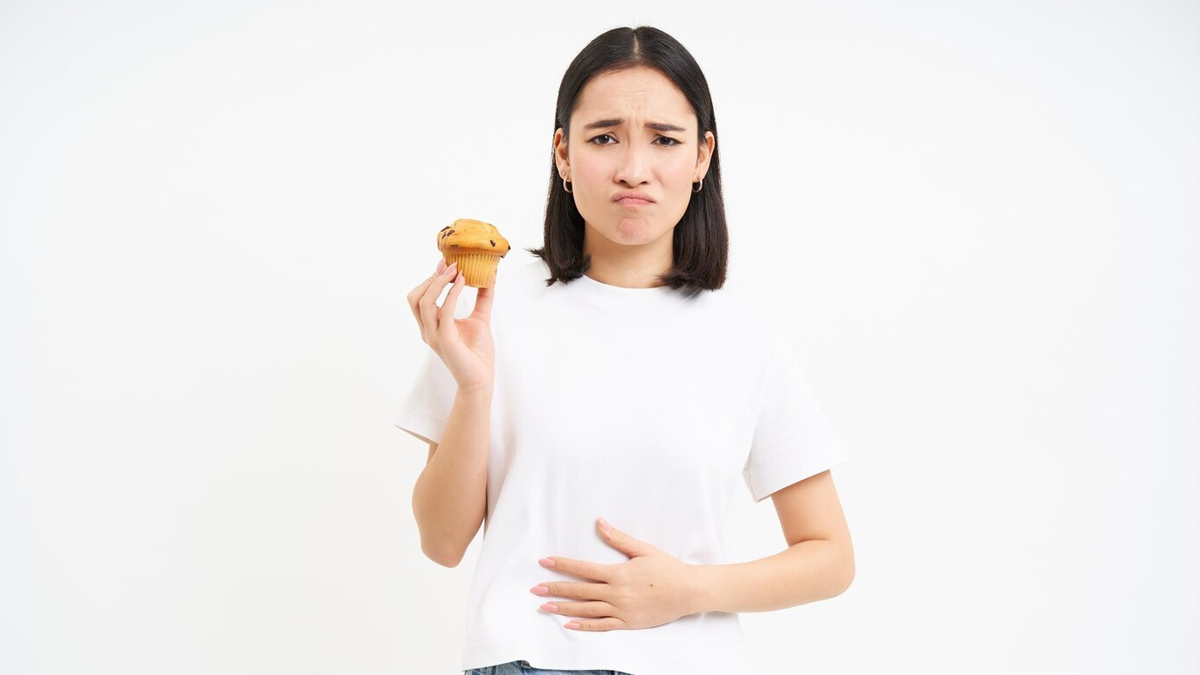
Gas or bloating is something everyone experiences in their lifetime. From eating or drinking too quickly to consuming foods like beans and peas to dealing with digestive conditions like Irritable Bowel Syndrome (IBS), many factors can cause gas in the stomach, also known as flatulence.
Table of Content:-
Additionally, gluten intolerance or conditions like coeliac disease can also increase gas in the stomach. Dr Pawan Rawal, Head Unit-1 - Gastroenterology, Artemis Hospitals, Gurugram, delves deeper into the link and shares ways to manage the symptom.
Also Read: Gluten Intolerance vs. Coeliac Disease; It Gets Confusing, Here’s How to Spot the Difference
What Is Coeliac Disease?

Coeliac disease is a digestive condition that is also an autoimmune disorder. An autoimmune disorder in the case of coeliac disease occurs when the immune system mistakenly attacks the small intestine when gluten, a protein found in wheat, barley, and rye, is consumed, leading to damage and impaired nutrient absorption.
According to StatPearls Publishing, coeliac disease affects approximately 1% of the global population. It is more likely to occur in people with other autoimmune disorders, such as type-1 diabetes, with rates ranging from 1.6% to 16.4%.
While the primary cause of coeliac disease is eating gluten, a combination of genetic, environmental, and immune factors can also trigger the condition.
Some of the common digestive symptoms are abdominal pain, bloating, diarrhoea, and weight loss.
Why Coeliac Disease Causes Excessive Gas

According to Dr Rawal, excessive gas can also be a strong indicator of poor digestion of food in the intestines, resulting in fermentation by bacteria. “This may cause gas production to increase and lead to discomfort,” he says, adding that such symptoms can be of varying degrees and at times can be confused with other gastrointestinal disorders. Hence, proper diagnosis is essential to treat coeliac disease effectively.
Gas due to coeliac disease is accompanied by bloating, diarrhoea, and abdominal pain following the ingestion of gluten-containing foods, such as wheat, barley, or rye.
Other gastrointestinal conditions, such as IBS, can cause gas, but they usually don't lead to the same type of damage to the intestines and don't usually get worse with gluten consumption. If symptoms don't go away or get worse, it's crucial to see a doctor for proper diagnosis and treatment.
Tests To Determine Gluten Intolerance Or Coeliac Disease
To treat gluten intolerance or coeliac disease, a few tests may be necessary.
“A blood test to determine if certain antibodies, such as tTG-IgA, are found in higher than normal amounts is often the initial step,” says Dr Rawal.
He adds, “If the blood test is positive, a small intestine biopsy is usually in order. A small tissue sample is taken to examine for damage from gluten.”
Additionally, genetic testing can also be utilised to rule out coeliac disease. The doctor suggests that it may be better to get tested while consuming gluten since removing gluten in advance can influence the test results.
Also Read: 3 Common Coeliac Disease Myths Debunked By A Gastroenterologist
What Does A Gluten-Free Diet Contain?

For someone with coeliac disease, a gluten-free diet is the primary treatment for controlling the disorder.
By eliminating gluten foods such as wheat, barley, and rye, one can prevent the immune system from destroying the small intestine. This helps to decrease inflammation and heal the intestine.
Removal of gluten also prevents continued damage to the gut necessary for enhanced digestion and nutrient absorption.
Hence, it is crucial to recognise all hidden sources of gluten, including:
- Processed foods such as sauces, salad dressings, and soups, where gluten is frequently added as a thickener.
- Certain medications, vitamins, and even cosmetics
- Foods such as oats can become cross-contaminated with gluten during processing.
Dr Rawal emphasises reading food labels and selecting certified gluten-free products to prevent accidental exposure. Knowledge of these hidden sources assists in managing symptoms and living with a gluten-free lifestyle, he concludes.
Also watch this video
How we keep this article up to date:
We work with experts and keep a close eye on the latest in health and wellness. Whenever there is a new research or helpful information, we update our articles with accurate and useful advice.
Current Version